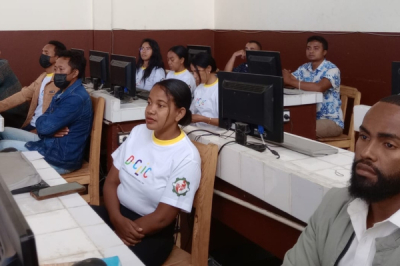- Dzair Services will serve as a one-stop portal for all government e-services.
- The project is part of Algeria’s 2025–2030 National Digital Transformation Strategy.
- It aims to modernize administration, improve data exchange, and boost efficiency.
Algeria is finalizing the rollout of Dzair Services, a national platform designed to centralize all public digital services. The announcement was made on Wednesday, October 16, 2025, by Meriem Benmouloud, High Commissioner for Digitalization, during the opening of the E-commerce and Online Services Fair (Ecsel Expo) in Algiers. The initiative marks a major milestone in the government’s long-term digital transformation policy.
Designed as a single access point, Dzair Services brings together all existing public digital services in one place. Its goal is to simplify procedures, ensure operational traceability, and reduce institutional overlaps. The government aims to modernize public administration while bringing services closer to citizens and businesses. The platform is expected to become the central interface of Algeria’s online administration.
The project aligns with the National Digital Transformation Strategy 2025–2030, unveiled in May 2025. Structured around seven key pillars, the plan seeks to develop digital infrastructure, strengthen cybersecurity, and consolidate technological sovereignty. It also aims to make digital technology a driver of economic growth through education, innovation, and skilled job creation.
Several major initiatives are already underway. The government has connected 46 ministries and public agencies to fiber optics and launched the national data center in El Mohammedia, with a second facility under construction in Blida. Authorities are also preparing to establish a sovereign cloud to host public data and eventually provide hosting solutions for local companies.
Technically, Dzair Services will rely on an interoperability system that allows public administrations to automatically exchange verified data. This architecture is expected to reduce data duplication, automate cross-checking, and speed up case processing. Nationwide, this interconnection will help produce reliable indicators, facilitate public planning, and lay the groundwork for the future integration of artificial intelligence into state management.



















